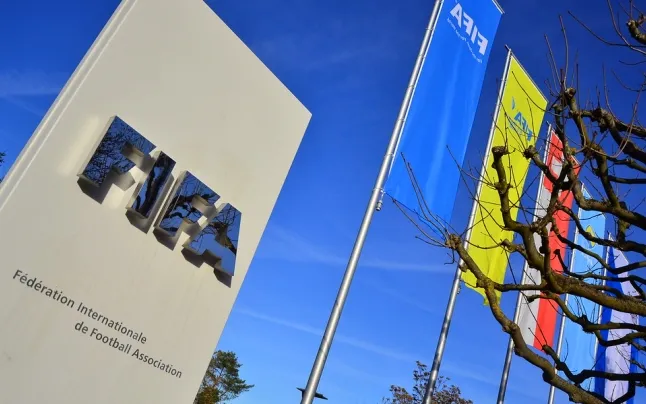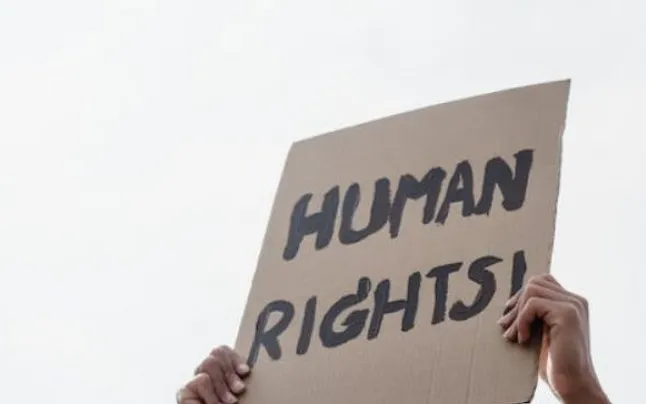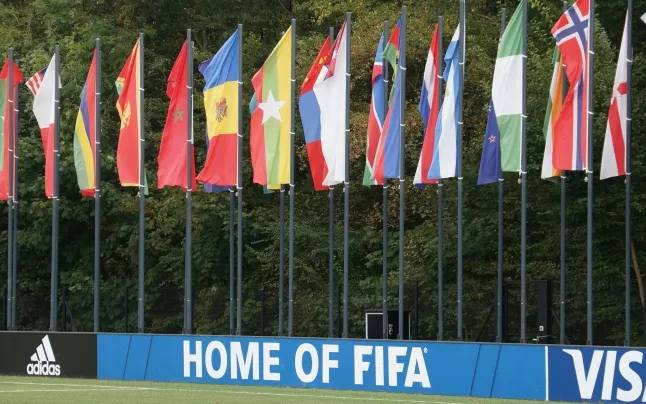The World Cup in Qatar is the latest example, and one of the most flagrant, of sportswashing, a practice that has increased in recent years, but which is as old as the sport itself.
Sportswashing is a term that has recently become known when defining the practice of using sport to legitimize and gain reputation. Although we have heard a lot about it in recent times, especially following the World Cup in Qatar, the truth is that this phenomenon is as old as the sport itself.
"There are certain countries that are using - and it's happening more and more - big sporting events and shows to project an image outside that has very little to do with what really happens inside", he explained to Nonprofit Carlos de las Heras, head of sports and human rights at Amnesty International (AI).
The example of Qatar, which has managed to host a World Cup being a country where human rights violations and the persecution of minorities are frequent, is very striking, but it has precedents that are just as or more nefarious. Among the most famous are the 1934 football World Cup that was organized by Mussolini's Italy and that served as a mouthpiece for the regime's propaganda; the 1936 Olympic Games held in Berlin for the glory of Nazi Germany; or the 1978 World Cup in Argentina, in a country under the yoke of dictator Jorge Rafael Videla.
"While in the Monumental Stadium of Buenos Aires a crowd of people celebrated the goals of the Argentine national team against the Netherlands, just ten streets away, at the School of Mechanics of the Navy, at that very moment the Videla's regime tortured and made members of the opposition disappear", says De las Heras.
The World Cup in Qatar, a paradigmatic case of sportswashing
Far from learning from mistakes, FIFA has continued to stumble over the same stone and has lent itself to washing the image of countries of dubious democratic quality through football. The World Cup in Russia in 2018 and, especially, that in Qatar in 2022 are clear examples of how the highest body in world football has allowed itself to be seduced by economic power and has put it before any other consideration.
"It is a World Cup that embarrasses us because Qatar is using it to offer the world a modern, open and reformist image, when the reality of human rights in the country is very worrying, with particular attention to freedom of expression, the rights of women, the rights of the LGBTI group and, above all, the abuses that migrant workers have suffered", AI laments.
At this point, the controversial choice of the Arab country as the venue of the tournament has caused widespread rejection and numerous criticisms among organizations and groups in defense of human rights. Also within the world of football itself, although in a much more timid way. For example, the FC Barcelona player, Héctor Bellerín, who was not selected by Spain to travel to Qatar, declared that he does not know if he would have been able to enjoy the appointment "with the burden of playing in a country in which 6,500 have died people" in the process of organization and construction of the World Cup.
This figure, which hurts, is from an investigation by the British newspaper The Guardian, which published an extensive report in which it recounted the terrible working conditions of the workers, most of them migrants from countries such as Bangladesh, Pakistan or Nepal, which they acted as labor to build the infrastructure for the event.
In this context, organizations such as AI and Human Rights Watch (HRW), among others, have launched the #PayUpFIFA campaign, in which they urge the organization to create a fund and endow it with 440 million dollars - the same amount which is reserved for prizes among the teams participating in the World Cup – to be used to repair and compensate workers who have suffered abuse during the process of organizing the event.
"It is necessary to make it clear to FIFA that, instead of hiding the problems under the rug, it should have gestures like supporting this fund", says De las Heras.
A strategy that has gained followers in recent years
FIFA, however, has not been the only major sports institution that has accepted Qatari money in exchange for turning a blind eye to the human rights situation in the country. In fact, the emirate has already become the main sponsor of FC Barcelona for six seasons, has bought Paris Saint-Germain, has organized major sporting events such as the 2019 World Athletics Championships and a test of the Formula 1 championship, among others, and has invested huge sums of money to gain weight and political power through sport.
It has also been done by countries around it, such as the United Arab Emirates and Saudi Arabia, and beyond, which in recent years have opted for this strategy to sweeten their image facing the outside world and emerge as a agent with a relevant role on the international board. "In recent years, certain countries, especially in the Middle East, are diversifying their investments abroad and are using sport to do so," they explain from AI.
Thus, despite the fact that FIFA is one of the main exponents of sportswashing, it is not the only one. There are much closer examples, such as that of the Spanish Football Federation (FEF), who in 2019 signed an agreement with Saudi Arabia to play the Spanish Super Cup of football in the Asian country for the next six years. To add insult to injury, the president of the federative body, Luis Rubiales, called the tournament "the Super Cup of equality".
"The decision to bring the Super Cup to Saudi Arabia was fundamentally economic, as is the case with almost all events that are held in countries where there are serious violations of human rights", they warned from AI, who to protest against this instrumentalization of football as a tool to mask the reality of constant violations of human rights perpetrated by the Saudi monarchy.
Israel: sport to divert attention from Apartheid
If we talk about sportswashing, another paradigmatic example of this practice is Israel, which has repeatedly used this strategy to divert attention from the crimes it systematically commits against the Palestinian population. This is what the international campaign of Boycott, Divestment and Sanctions on Israel (BDS) and the Coalition Sufficiently Complicit with Israel (CPCI) denounce.
"When we talk about this issue, we realize the success of Israel's media campaigns to wash its image, given that many people continue to be completely unaware of the very serious violations of rights that the country commits in Palestine", Ayed Safadi, from the CPCI, warned Nonprofit.
Part of these campaigns embrace sport as an instrument to wash Israel's face and project it as an open and modern country, while hiding the occupation and Apartheid. There are plenty of examples, such as the 2018 Giro d'Italia cycling event, which hosted three stages in the Jewish State in exchange for around ten million euros, as several media claimed.
Without leaving the sport of cycling, the country has also invested in the creation of a leading team, the Israel Cycling Team, which competes in the main international events of the cycling calendar. Or in the presence at the Volta a Catalunya of another Israeli team, the Israel Cycling Academy, which generated a lot of controversy. For this reason, the BDS campaign and the CPCI are calling not to support this kind of strategy that "normalizes" Israeli policies: "Either you plant yourself, or you are one more accomplice", they express.
Big events that don't change anything
However, one must ask whether these great sporting events serve to change something, from the point of view of human rights, in the countries where they are held. Does the pressure in this sense have any positive effect or is it all a mere image washing operation?
This, precisely, is the argument put forward by FEF president Luis Rubiales to justify the agreement to bring the Spanish Super Cup to Saudi Arabia. A reasoning that he has used again to talk about the World Cup in Qatar, which, he says, will "leave a legacy in the country" in terms of human rights.
Reality, on the other hand, does not support the opinion of the leader of Spanish football: "Until now, if we rely on the past, the truth is that the celebration of these sporting events has served very little, beyond the publicity maneuver that it represents", points out Carlos de las Heras.
However, AI has insisted that its position is not to promote the boycott of these types of events, but to draw attention to what is really happening there. "If, in spite of everything, a World Cup is played in Qatar, we believe that we cannot pass up the opportunity to put the human rights situation in the country on the table and demand that things change", says the head of AI. For this reason, looking to the future, they ask that clauses be included that take into account respect for human rights when celebrating major sporting events.
It is not asking for anything that FIFA has not promised to fulfill. In fact, in 2016 the highest body of world football included a human rights clause in its statutes in which it established its "firm commitment in favor of respect for human rights recognized by the international community" and added that it "will strive to guarantee respect for these rights". The World Cup in Qatar is the latest demonstration that, until now, everything is nothing more than wet paper.









Add new comment